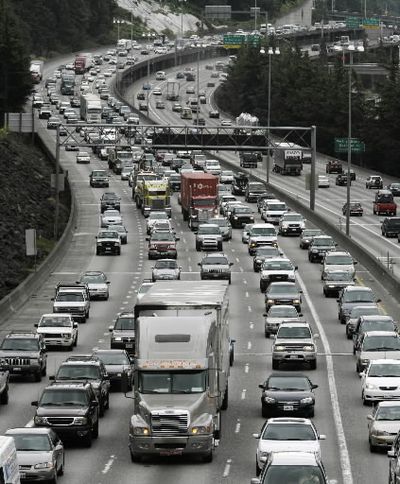Washington’s effort to encourage alternative, non-car commutes is “model for the nation”

Washington state’s Commute Trip Reduction program is working.
That’s the word from a post on the Atlantic’s CityLab blog , which called the program to encourage commuters to get out of their cars “a model for the nation.”
As much as people may think they’re free to make their own travel choices, the truth is employers have an enormous influence over how their employees get to work. Office location is a big part of that decision, for sure, but it’s not all of it. Research has found that companies in areas served well by public transit can still nudge people into cars with parking benefits, and that commuters are never more open to new modes than when they start a new job (or when their company moves)
Washington has arguably done more than any state in the country to acknowledge these behavioral realities with its Commute Trip Reduction (CTR) program . Now nearly 25 years in, the program has helped the state reduce drive-alone commutes—especially in the metro Seattle area—and by extension traffic congestion, car-related pollution, and energy use. It’s also accomplished its goal of convincing employers they’re in the transportation game after all.
There are 1,110 worksites participating in the state program, and though Seattle is the obviously epicenter of the program’s effort, Spokane has its fair share of commuters who fill out their monthly commute calendars. In fact, I participate in the program here at the paper, and I just got a free slice of pizza for commuting alternatively (not by car) for 30 days this year.
But does it work? Yes, according to the most recent progress report . As the CityLab post says , the report “found that between 2007 and 2012, the rate of driving alone among CTR participants fell 3 percent and vehicle miles declined 4.6 percent—huge figures extended across 1,100 worksites and two-plus decades. The shift is more impressive when placed against trends toward higher drive-alone rates at non-CTR companies, as well as the rest of the nation, over the same period.”
Do you participate in the Commute Trip Reduction program? Why or why not?
* This story was originally published as a post from the blog "Getting There." Read all stories from this blog